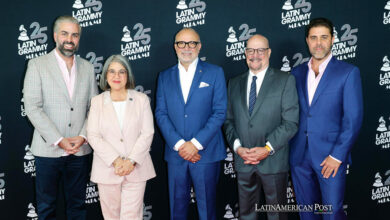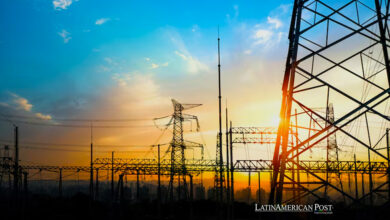Dialogue in Venezuela: is there a possibility of an agreement?
With a fragmented opposition and without international observers on their part, the talks in the Dominican Republic are resumed

What is the panorama in Venezuela?
The negotiations began last year under the protection of the Dominican President, Danilo Medina, and the former president of the Spanish government, José Luís Rodríguez Zapatero. Additionally, the talks had the accompaniment of international observers elected by both the opposition and the government. The opposition designated Chile and Mexico, and the government selected Bolivia, Nicaragua, and Saint Vincent and the Grenadines.
The dialog was planned to be resumed on January 18 and 19. However, "El Junquito Massacre" took place and the exaggeant of the Scientific, Penal and Criminal Investigation Unit (Cicpc, in Spanish), Oscar Perez resulted death. The statements of the Minister of Interior, Justice, and Peace, Nestor Reverol, pointed out that the housing where they were hidden was located after "some political leaders in the framework of the dialogue for peace" revealed data about their location.
Nevertheless, the Democratic Unity Roundtable (known as M.U.D., in Spanish), as the opposition coalition is called, took out a statement in which branded it as false. The opposition suspended its next meeting in Santo Domingo.
This situation was followed by the unilateral decision of the National Constituent Assembly (ANC, in Spanish) to advance the presidential elections for April 30 when these were scheduled for December. This resulted in the reduction of the international mediation, with the abandonment of the tables by Chile and Mexico. Furthermore, Voluntad Popular pointed the dialogue of being a farce and renounced to being part of the meeting, after noting that this work belongs to the National Electoral Council (CNE, in Spanish) and not to the ANC -which in the opinion of many, exercises its powers illegitimately-.
As last thrust, there is the sinking of the MUD card. The Supreme Court of Justice ordered the CNE to exclude the opposition coalition from the ballot validation process, alleging that the card contradicts "openly the prohibition of double militancy". It must be highlighted the fact that the MUD has open judicial proceedings in seven entities: Aragua, Apure, Bolivar, Carabobo, Monagas, Trujillo and Zulia.
"The CNE is ordered to exclude the MUD in the process of renewal convened because its conformation is due to the grouping of various political organizations already renewed and others pending renewal that may participate in the national electoral process", dictates the sentence of the Constitutional Chamber.
With this panorama, Venezuelans consider this dialogue and the upcoming elections, a mere formalism to continue the dictatorship and prolong the stay of Nicolas Maduro in power.
What is expected from the negotiations?
So far, it is known that the agenda of the dialogue will discuss the following topics:
- Opposition claims for electoral timeline and electoral guarantees, fair conditions, peaceful coexistence, recognition, and restitution of the National Assembly (AN). Furthermore, it also contemplates the opening of a humanitarian channel, where the arrival of food and medicines to the country is guaranteed. The Venezuelan government has rejected the international aid because it can open the doors to foreign military intervention. Finally, this point also includes the release of political prisoners.
- Government asks for respect for Venezuelan sovereignty, a halt to interventionist actions from other countries, respect for the results of the elections, peaceful coexistence, the recognition of the National Constituent Assembly, economic guarantees, the cessation of the economic sanctions of Donald Trump and the European Union (EU) against the Venezuelan government. Furthermore, it also requests electoral guarantees for the results of the elections to be recognized.
Although for the opposition there are still points to be discussed, such as the elections or the fate of the National Constituent Assembly, for the government, a pre-agreement is ready to be signed.
For Venezuelans, this reunion will end in what the previous dialogues: nothing. The first stage was not encouraging, taking IGNORE INTO account that in December there should be a response that has been postponed until this date. As the year progresses, the decisions of the Supreme Court and the ANC (both of an official majority) promote, on the opposing side, a lack of credibility in the elections.
However, if despite the new and unbalanced panorama, the dialogue continues, there is hope for Venezuela. The economic, political, and social conditions get worse in the country. The crisis does not distinguish between government and opposition; it affects both equally.
"We believe that this meeting represents a definite opportunity for the Government to review its recent decisions, and thus prevent the country from entering IGNORE INTO unmanageable chaos. We will continue defending the interests of all Venezuelans, as we have done so far in previous meetings and we ask Venezuelan people for confidence in these efforts that seek to consolidate political change and restore dignity to the people”, said the MUD in its latest statement, prior to attending the negotiations.
"We will not give up in this fight. The change is near. Together we will achieve it", concluded the statement.
LatinAmerican Post | Camila González C.
Copy edited by Marcela Peñaloza





